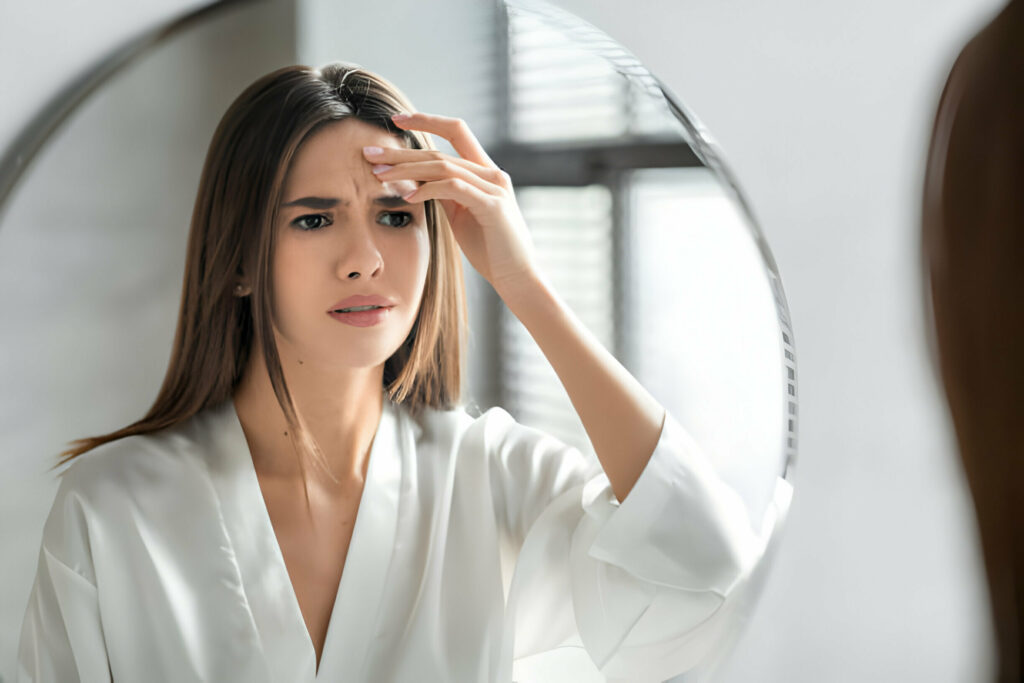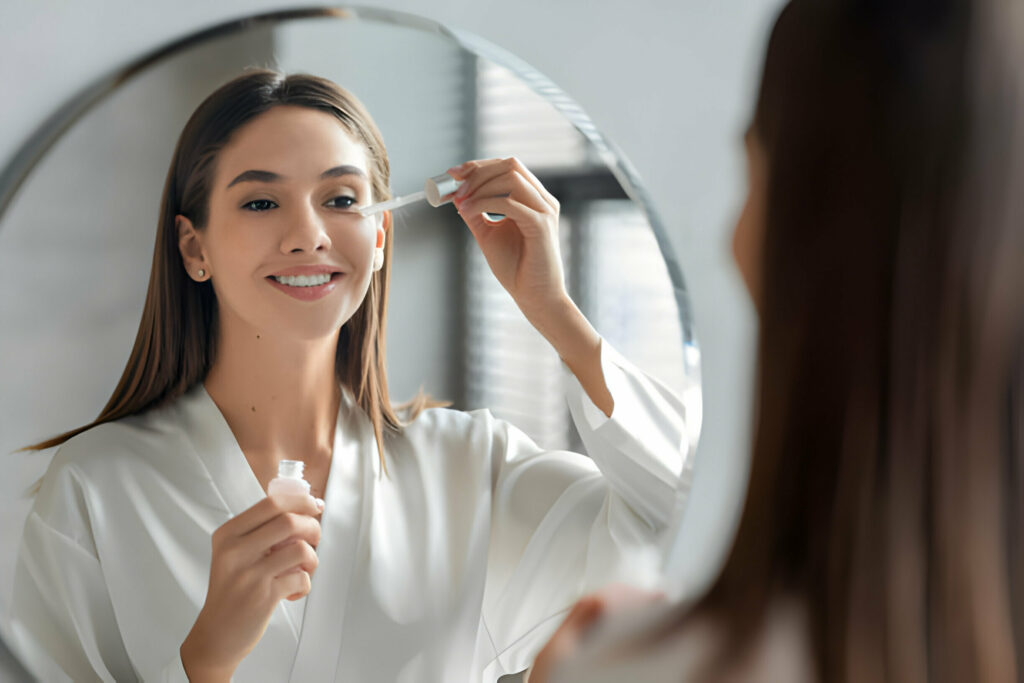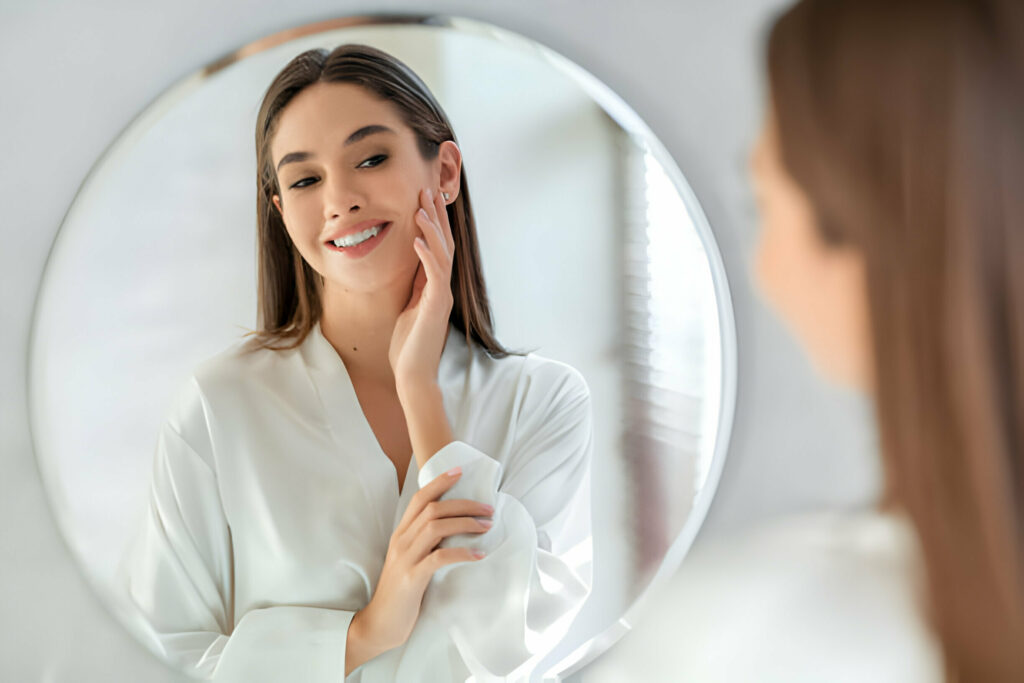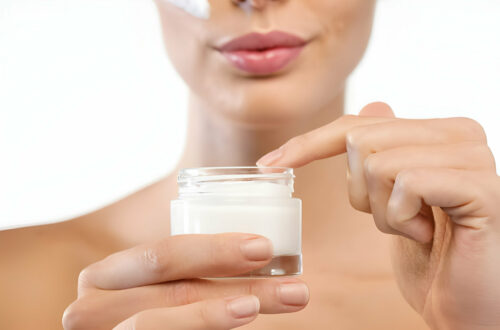You’ve probably heard the talk about peptides being a must-have for fighting aging, helping to make skin smoother, repairing damage, and keeping it hydrated. But have you ever wondered what exactly a peptide is and what it does for your skin? And is it worth having it as a key ingredient in your skincare products? Well, according to two top dermatologists, the answer is yes.
In this article, we’re going to break down the science behind how peptides work, what they do for our skin and body, how we can get more of them, and which skincare products with peptides are the best to consider.
What Are Peptides and How Do They Help? Before we delve into peptides, let’s first understand amino acids. “Peptides are chains of amino acids, which are like the building blocks for proteins in our body, including the collagen that keeps our skin healthy,” explains Dr. Whitney Bowe, a well-known dermatologist and author based in New York City. Dr. Deanne Mraz Robinson, a partner at Modern Dermatology in Westport, CT, adds, “Peptides are not just important for creating new collagen, they also play a role in elastin fibers. These fibers are crucial for skin structure, firmness, and elasticity.”
Peptides do more than just support the skin’s structure and function, which are essential for firmness, texture, and overall appearance. They’re present in every human cell and have a significant role in how our body works, often acting as messengers. “Our body constantly relies on peptides. Without them, our body wouldn’t function properly,” says Dr. Robinson. “Peptides have a range of functions in the body, from building enzymes and hormones to providing energy. Incorporating glowing skin care routines that emphasize these benefits can enhance your skin’s radiance.

How Peptides in Your Skincare Routine Work
If peptides are already in our bodies, why should we add more? The reason, as experts explain, is aging. As we get older, our skin’s natural channels of communication slow down, and we lose about 1% of our remaining collagen each year after turning 30, according to Dr. Robinson. Holistic skin care can help address these changes by focusing on overall well-being and integrating natural methods to support skin health.
But just applying peptides directly to your skin doesn’t necessarily mean you’ll have more of them. Dr. Bowe clarifies how they function in a slightly more complicated way: “Your body sees these peptides as ‘signals’ that indicate healing is needed. This prompts your body to produce more collagen where it’s most required,” she says. Dr. Bowe adds, “For instance, if you’re recovering from an ankle injury, these peptides will instruct your body to focus its repair efforts on that specific joint. Similarly, if your skin is aging prematurely, these peptides might signal your skin to increase collagen and hyaluronic acid production. This can plump up your skin and restore a healthy skin barrier.”

When you apply peptides externally to your skin through products like moisturizers or serums, it tricks your skin into believing there’s a wound or injury. This, in turn, stimulates processes that boost collagen production.
Different Types of Peptides in Skincare
When it comes to taking care of your skin, not all peptides are the same. Dr. Robinson explains that while there are many different peptides, some are better for your skin than others. Let’s take a look at a few examples.
Carrier Peptides: These deliver tiny minerals to your skin that help boost collagen production.
Enzyme Inhibitor Peptides: These work to slow down the natural breakdown of collagen in your skin.
Signal Peptides: These send messages to different parts of your skin, encouraging the production of collagen, elastin, and other important proteins. This makes your skin firmer and more plump.

Neurotransmitter Peptides: These are a bit like Botox and can be found in products you apply or even in injectables. They help relax your facial muscles, reducing the appearance of wrinkles and lines. A study in 2009 found that these peptides decreased certain types of wrinkles by 30%.
Signal Peptides: Also known as palmitoylpentapeptides, these are very common in skincare products. They’re great at telling your skin to make more collagen, elastin, and other proteins that keep your skin looking firm and youthful.
Different Kinds of Peptides Explained
Carrier Peptides
Carrier peptides are called “carriers” because they help bring small but important elements like copper and magnesium to your skin. Copper has become popular lately because it can boost collagen production, making your skin firmer and more stretchy. Copper complexes can also help reduce the look of age spots that come from too much sun exposure.
Enzyme-Inhibitor Peptides
Enzyme-inhibitor peptides do exactly what their name says. They slow down the natural process in your body that causes you to lose collagen. Some peptides that come from rice proteins can help your skin hold on to more collagen, while certain ones from soy can stop pigmentation problems.
Getting More Peptides in Your Skincare Routine
Dr. Bowe suggests using skincare products that contain peptides to improve your skin. But she points out that it’s important to check how the product is made: the ingredients it has, how stable they are, and whether they can get through your skin’s protective barrier. Incorporating antioxidant skin care can further enhance the effectiveness of peptides by protecting your skin from free radicals. Talking to a dermatologist can help you choose the right products.

Choosing the right kind of product matters too. Dr. Robinson says instead of using a cleanser with peptides, it’s better to use products that stay on your skin, like moisturizers, eye creams, or serums. She also suggests looking for products with copper peptides. These not only help make collagen but also keep the collagen you already have. She also recommends looking for products with niacinamide, vitamin C, natural products for skin care and antioxidants, along with peptides.
Once you find the cream or serum that works for you, Dr. Robinson suggests using it twice a day on clean skin, before putting on makeup and SPF.
Apart from creams and serums, eating foods rich in collagen, like bone broth, and adding a trustworthy collagen supplement to your diet can also do wonders for your skin.





